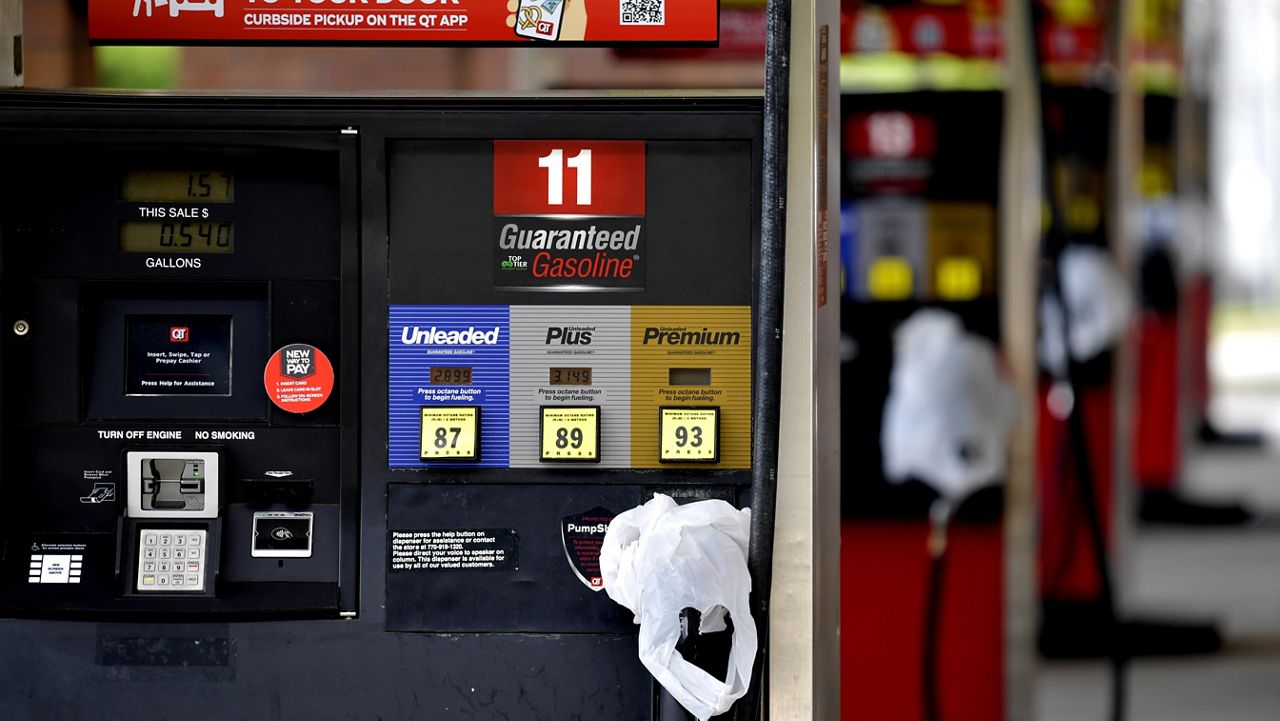In the aftermath of the ransomware attack on the Colonial Pipeline, the United States’ largest pipeline system for refined oil products which moves approximately 45% of the East Coast’s fuel, gas prices have risen over $3-per-gallon for the first time in six years, according to AAA, and gas stations in a number of states are running dry — thanks in large part to panic-buying.
Per Patrick De Haan, an oil analyst with GasBuddy, an online tracker of real-time fuel prices, as of Wednesday afternoon, states like Georgia (45%), North Carolina (68%), South Carolina (45%) and Virginia (49%) were experiencing significant shortages.
About 65% of gas stations in Atlanta are reporting being out of gas, according to De Haan.
Governors in Florida, North Carolina, Virginia and Georgia have taken executive emergency action to try and ease the pain in their states, and the federal government is taking action to address the shutdown and get fuel to the areas that need it most.
The Department of Transportation announced that they will waive weight requirements on interstate highways to allow transportation of fuel to the following states:
- Alabama
- Georgia
- Kentucky
- Louisiana
- Maryland
- Mississippi
- New Jersey
- North Carolina
- Tennessee
- Virginia
Transportation Secretary Pete Buttigieg urged "need to be sure that we are resilient in the face of cyber threats," which he said President Biden's American Jobs Plan, his proposed $2.3 infrastructure bill, would provide.
"This is not extra. This is not a luxury, this is not an option," Buttigieg continued. "This has to be core to how we secure our critical infrastructure and that includes infrastructure that is not owned and operated by the federal government."
The Environmental Protection Agency issued an emergency fuel waiver that lowers some standards for gasoline distributed in the affected states in an attempt to help ease supply concerns, and the U.S. is also considering waiving the Jones Act — a maritime commerce law which requires goods being moved between U.S. ports be staffed by U.S. crews and carried by ships built in the U.S. — to carry fuel up the Eastern Seaboard.
"While the waiver alone will not resolve the supply situation, it will help alleviate supply shortages," EPA administrator Michael Regan said at a White House press briefing on Wednesday.
Officials urged Americans not to panic-buy or hoard fuel.
"Of course we understand the concern in the areas where people are encountering temporary supply disruptions, but hoarding does not make things better," Buttigieg said Wednesday.
“It's not that we have a gasoline shortage, it's that we have this supply crunch,” Energy Secretary Jennifer Granholm said at a press briefing on Tuesday. “Things will be back to normal soon, and we're asking people not to hoard and know that we are all over this.”
“The Department of Homeland Security stands ready to review any temporary Jones Act waiver requests from companies that demonstrate there is not sufficient capacity on Jones Act-qualified vessels to carry fuel to the affected region,” White House press secretary Jen Psaki said Tuesday.
The Consumer Product Safety Commission has also issued safety warnings for storing fuel, including not to fill plastic bags with gasoline, instead using approved fuel containers.
Buttigieg echoed this guidance on Wednesday: "Under no circumstances should gasoline ever be put into anything but a vehicle directly or an approved container, and that, of course, remains true no matter what else is going on."
The cyberattack has sparked questions about the security of the country’s critical infrastructure, such as pipelines. On Tuesday, White House press secretary Jen Psaki called the incident a “lesson.”
“We have ensured that there is increased cooperation between the public and private sector,” she said. “But a big lesson from this is the need for all companies to harden their cybersecurity apparatus and to ensure that they are protecting themselves.”
DHS secretary Mayorkas said Tuesday that ransomware attacks are not new and that cybersecurity was a department priority, especially considering increased attacks on small and medium-sized businesses.
“There are different levels of strength and resilience across the critical infrastructure enterprise, and that is why we are so focused on making sure that the cyber hygiene across the entire enterprise is strengthened,” Mayorkas said Tuesday. “One is only as strong as one's weakest link.”
The FBI is investigating the attack on Colonial Pipeline. They confirmed that a group called Darkside, which has Russian links, is responsible, but haven’t pinned any blame on the Russian government so far.
The company says it expects to be up and running by the end of the week.
Spectrum News' Austin Landis contributed to this report.



